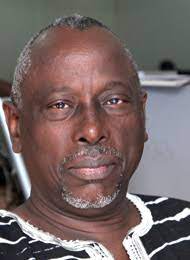Over the last few months, Rwandans have demonstrated that they have power and are prepared to exercise it to safeguard the gains they have made and guarantee their future. They have moved almost as one to compel a change in the constitution.

Over the last few months, Rwandans have demonstrated that they have power and are prepared to exercise it to safeguard the gains they have made and guarantee their future.
They have moved almost as one to compel a change in the constitution.
They signed petitions in their millions and presented them to parliament so that the legislators could start the amendment process.
When the petitions were tabled before parliament, they were there in their hundreds.
What we’ve been seeing in Rwanda is called People Power. But it is People Power different from what we are used to.
The collection of signatures was done without a fuss but with a lot of eagerness. The presentation of petitions was made in an orderly and festive mood.
The debate in parliament took place in a uniquely Rwandan atmosphere, at once solemn and celebratory. The lawmakers deliberated in the usual grave, measured and, sometimes, impassioned manner.
The citizens in the public galleries provided a cheerful backdrop to the serious business. They were in a party mood, cheering, ululating, singing and dancing.
The world is not used to People Power expressed this way. It is more accustomed to rowdy, confrontational and sometimes violent protests. But then, of course, Rwandans do not behave as the world expects or is used to. They do things their own way.
And so what has been happening here has not been the usual highly charged political demonstration. This was not the opposition calling for the downfall of the government of the day because of its excesses or unpopularity. They were not agitating against a dictatorial or repressive regime.
It was not a fringe group calling for recognition or advancing a particular cause government or the population had ignored. It was not a marginalized group crying out for equal opportunity and justice.
It was People Power with a difference. Rwandans were actually expressing confidence in their government, not protesting against it.
They were urging it to amend the constitution so that they can continue to enjoy the good things the current leadership of the country has brought them. They were pleading with President Paul Kagame to continue leading the country.
So far, he has been reluctant to accept their plea or to give them a definite answer. But how long can he hold out against such a groundswell of support and earnest entreaty?
How long can he resist People Power? If history is any indicator, not for very long, because everywhere it has been exercised, People Power has been irresistible.
There is another difference. People Power elsewhere gets much widespread media coverage and support from governments of some of the most powerful countries.
Various people’s movements get soft, seductive and colourful names, which then become popular expressions of protest and dissent, and even assume a universal dimension.
For instance, protests in the Philippines against the excesses of President Ferdinand Marcos in the 1980s gave us the term, People Power or the Yellow Revolution.
We got the Arab Spring in North Africa and Middle East a few years ago. We’ve had the Orange Revolution in Ukraine, Rose Revolution in Georgia and the Velvet Revolution in the former Czechoslovakia.
All these had several things in common. They were anti-government movements, admittedly against unpopular, corrupt and dictatorial regimes.
They were protests that used demonstrations, occupation and take-over of strategic places and public institutions, and sometimes violence as means to achieve their goals.
Most importantly, they were praised and trumpeted to the whole world by the international media and propaganda departments of the powerful countries.
People Power in Rwanda has not received similar praise or coverage. In fact, it has been met mainly with condemnation. One hears threats of dire consequences if the people’s wishes are respected.
Or not too gentle advice about respect for democracy and term limits.
This reaction has Rwandans a little confused. What can be more democratic than citizens saying that they are happy with the way their president has governed the country?
Is there anything undemocratic about electing to keep a leader who is making it possible for you to realize your dreams and aspirations, individually and collectively as a nation?
And surely, peaceful and popular demand to amend the constitution you made yourselves via the laid down legal procedures cannot be construed as disrespect for the rule of law or democracy.
It is baffling because in other places, People Power actually seeks to subvert the legally established order. Although, most times it is illegal, it gets support precisely because it is an expression of the people’s desire to regain their democratic rights.
People Power as we have seen it in Rwanda has not got similar recognition.
Perhaps that is because it does not meet the standard for international acceptance, such as anger, violence and an anti-government agenda. For that reason it is not attractive and has not been given one of those fancy names.
That should not be a big issue, though. What matters is that Rwandans know they have power and are expressing it their own way. People Power by any or no other name is still potent.
jorwagatare@yahoo.co.uk


